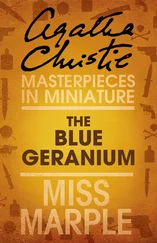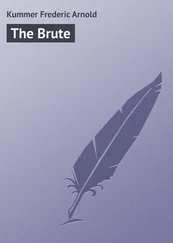Frederic Kummer - The Blue Lights - A Detective Story
Здесь есть возможность читать онлайн «Frederic Kummer - The Blue Lights - A Detective Story» — ознакомительный отрывок электронной книги совершенно бесплатно, а после прочтения отрывка купить полную версию. В некоторых случаях можно слушать аудио, скачать через торрент в формате fb2 и присутствует краткое содержание. Жанр: Классический детектив, foreign_detective, foreign_prose, на английском языке. Описание произведения, (предисловие) а так же отзывы посетителей доступны на портале библиотеки ЛибКат.
- Название:The Blue Lights: A Detective Story
- Автор:
- Жанр:
- Год:неизвестен
- ISBN:нет данных
- Рейтинг книги:4 / 5. Голосов: 1
-
Избранное:Добавить в избранное
- Отзывы:
-
Ваша оценка:
- 80
- 1
- 2
- 3
- 4
- 5
The Blue Lights: A Detective Story: краткое содержание, описание и аннотация
Предлагаем к чтению аннотацию, описание, краткое содержание или предисловие (зависит от того, что написал сам автор книги «The Blue Lights: A Detective Story»). Если вы не нашли необходимую информацию о книге — напишите в комментариях, мы постараемся отыскать её.
The Blue Lights: A Detective Story — читать онлайн ознакомительный отрывок
Ниже представлен текст книги, разбитый по страницам. Система сохранения места последней прочитанной страницы, позволяет с удобством читать онлайн бесплатно книгу «The Blue Lights: A Detective Story», без необходимости каждый раз заново искать на чём Вы остановились. Поставьте закладку, и сможете в любой момент перейти на страницу, на которой закончили чтение.
Интервал:
Закладка:
"Ah, yes. Do you happen to remember his name?"
"Alphonse, it was – Alphonse Valentin, or some such joke of a name. A comic valentine he was, too, with his dinky little mustache and his cigarettes." He laughed loudly. "Imagine my Mary, married to a gink like that!"
Duvall replaced his notebook in his pocket and rose. "I'm mightily obliged to you, Mr. Lanahan. We will advise you at once, if our investigations show that you are related to the Michael Lanahan whose fortune is in our hands. I'm obliged to you for your courtesy."
The florist nodded. "You're welcome, sir. I guess them Lanahan's must be a different breed. I never heard tell of any of my people makin' any fortune. Good day, sir." He turned to his work, chuckling.
Duvall rode back to the station, and took the first train for New York. It was clear that Mary Lanahan's parents had nothing in common with blackmailers and kidnappers. Their honesty was as evident as the blueness of their eyes, or the redness of their hair. But the information about Alphonse Valentin, the chauffeur, and Barney, Mr. Lanahan's son, seemed more promising.
It was close to one o'clock when Duvall arrived at Callahan's saloon, on the Bowery, near Canal Street. Here a disappointment awaited him. Barney Lanahan had thrown up his job and left two months before. Callahan had no idea where he had gone. He had not been about the place since. A negro porter volunteered the information that he had seen the man entering the Broadway saloon of an ex-prizefighter some weeks before; but, beyond that, Duvall could learn nothing.
After a hasty luncheon he went to his office on Union Square, where his unexpected appearance caused his assistants unlimited surprise. He directed them to locate Barney Lanahan at the earliest possible moment. He then called up Mr. Stapleton's secretary, Mr. Hodgman, and inquired about the chauffeur.
Mr. Hodgman informed him that the banker had employed Valentin in Paris some eighteen months previous, and had brought him to this country, where he had remained in his employ for about six months. He had been discharged, through some dishonesty in the matter of purchasing supplies, and nothing further had been seen or heard of him.
Duvall, on receiving this information, proceeded at once to the office of the French line, and asked permission to inspect their passenger lists for the past year. He concluded that if Valentin had anything to do with the kidnapping of Mr. Stapleton's boy, he was, in all probability, in Paris, and, if so, would almost certainly have crossed by this line. He was therefore not at all surprised to find the name of Alphonse Valentin among those sailing during the preceding March.
There was little more that he could accomplish, now, beyond writing a long letter to Grace, whom he naturally supposed to be patiently awaiting his return in the country. He had a short interview with Mr. Hodgman in the evening, and was lucky enough to secure a photograph of Alphonse Valentin, the chauffeur, taken at the steering wheel of his machine. The car had, it seemed, been photographed, along with a party of guests, by a friend of Mr. Stapleton's with a leaning toward amateur photography. Duvall placed the photograph among his belongings with a smile of satisfaction. He felt that his delay had been by no means unprofitable.
One other step he took, before leaving. Accompanied by Mr. Hodgman, he made a careful inspection of the room which had been occupied by the nurse, Mary Lanahan, at the Stapleton house. The results were distressingly meager. All the woman's belongings she had evidently taken with her, on going abroad. There appeared to be nothing which would afford the slightest clue to her character or habits.
Mr. Hodgman turned to the door with an impatient frown. "Nothing here," he growled, and was about to leave the room.
"Nothing much," said Duvall, glancing carelessly at the wooden edge of the bureau. "This woman, Mary Lanahan, is evidently an up-to-date sort of person."
Hodgman paused. "Why do you say that?" he asked.
"Smokes cigarettes, I see."
"That so. How do you know?"
Duvall smiled. "Too simple even to mention, Mr. Hodgman. See those burns on the varnish?" He pointed to a number of spots along the edge of the dresser. "Always find them somewhere about, where there's a cigarette smoker." He gazed out of the window for a moment. "Rooms tell a great deal about the personality of the people who have occupied them. For instance, I've never seen this Lanahan girl, but I know that she's not over five feet four, that she has light hair, that she reads in bed, that she writes with a stub pen, and that she's a Roman Catholic. Furthermore, she is left handed, inclined to be vain, wears her hair in waves, or curls, in front, is fond of the theater, and has a long narrow scar on the palm of her left hand."
He chuckled quietly, as he saw Mr. Hodgman's look of amazement. "All very simple – quite elementary, in fact. I won't even bother to tell you how I know – just little things here and there about the room. Here's one of them," he said, as he picked up a rusty pen point from the desk. "That shows she uses a stub, of course; but the way the point is worn also proves that she's left handed. And here's another." He pointed to the electric bulb which hung over the head of the bed. "Nobody would use that light, except to read by in bed. The others in the room are more than sufficient for purposes of illumination. Yet the lamp has been used continuously, as its condition shows. See how blackened the glass is – and notice also how the white enamel of the back of the bed is worn off, just under the lamp. That's from propping a pillow against it, night after night." He turned toward the door. "Of course, those things aren't of any value, probably, in this case; but I can't help noticing them. Force of habit, I suppose."
When Duvall arrived at the Stapleton house on Saturday morning, he found the banker somewhat disturbed by a cablegram he had just received. "Mary claims attempts made to poison her. Will recover. Come at once," it read.
The detective appeared to be somewhat astonished, on reading the cablegram. "Looks as though somebody was afraid she might be going to talk," he remarked. "The sooner we arrive in Paris, now, the better."
CHAPTER III
GRACE DUVALL'S first inclination, on finding herself en route for Europe, without her husband, was to send him a wireless, advising him of her movements. Then she decided, for several reasons, not to do so. Chief among these was the fear that such a startling piece of news would be likely to cause him a great deal of unnecessary anxiety. She knew that she could never hope to explain matters, within the limits of a marconigram. And then, too, it was highly inadvisable, she knew, to mention in a wireless message the real reason which had caused her to leave home.
So she decided to make the best of the matter, realizing that within a few days, she would see Richard in Paris, and explain everything to his satisfaction.
Immediately on reaching Paris, she drove to the office of the Prefect of Police, and sent in her card to Monsieur Lefevre. She thought it possible that he would expect her, as his agent in Washington would no doubt have communicated with him. Nor was she mistaken.
He rushed into the anteroom as soon as he received her card, and embraced her with true Gallic fervor, kissing her on both cheeks until she blushed. Then he drew her into his private office.
"Where is your husband?" he asked, eagerly, as soon as Grace was seated.
"I – I do not know. Probably on his way to Paris."
"But – my dear child! Did he not then come with you?"
"No. He – he had other business."
"Other business! But I understood that he had temporarily retired." The Prefect seemed greatly astonished.
Читать дальшеИнтервал:
Закладка:
Похожие книги на «The Blue Lights: A Detective Story»
Представляем Вашему вниманию похожие книги на «The Blue Lights: A Detective Story» списком для выбора. Мы отобрали схожую по названию и смыслу литературу в надежде предоставить читателям больше вариантов отыскать новые, интересные, ещё непрочитанные произведения.
Обсуждение, отзывы о книге «The Blue Lights: A Detective Story» и просто собственные мнения читателей. Оставьте ваши комментарии, напишите, что Вы думаете о произведении, его смысле или главных героях. Укажите что конкретно понравилось, а что нет, и почему Вы так считаете.












